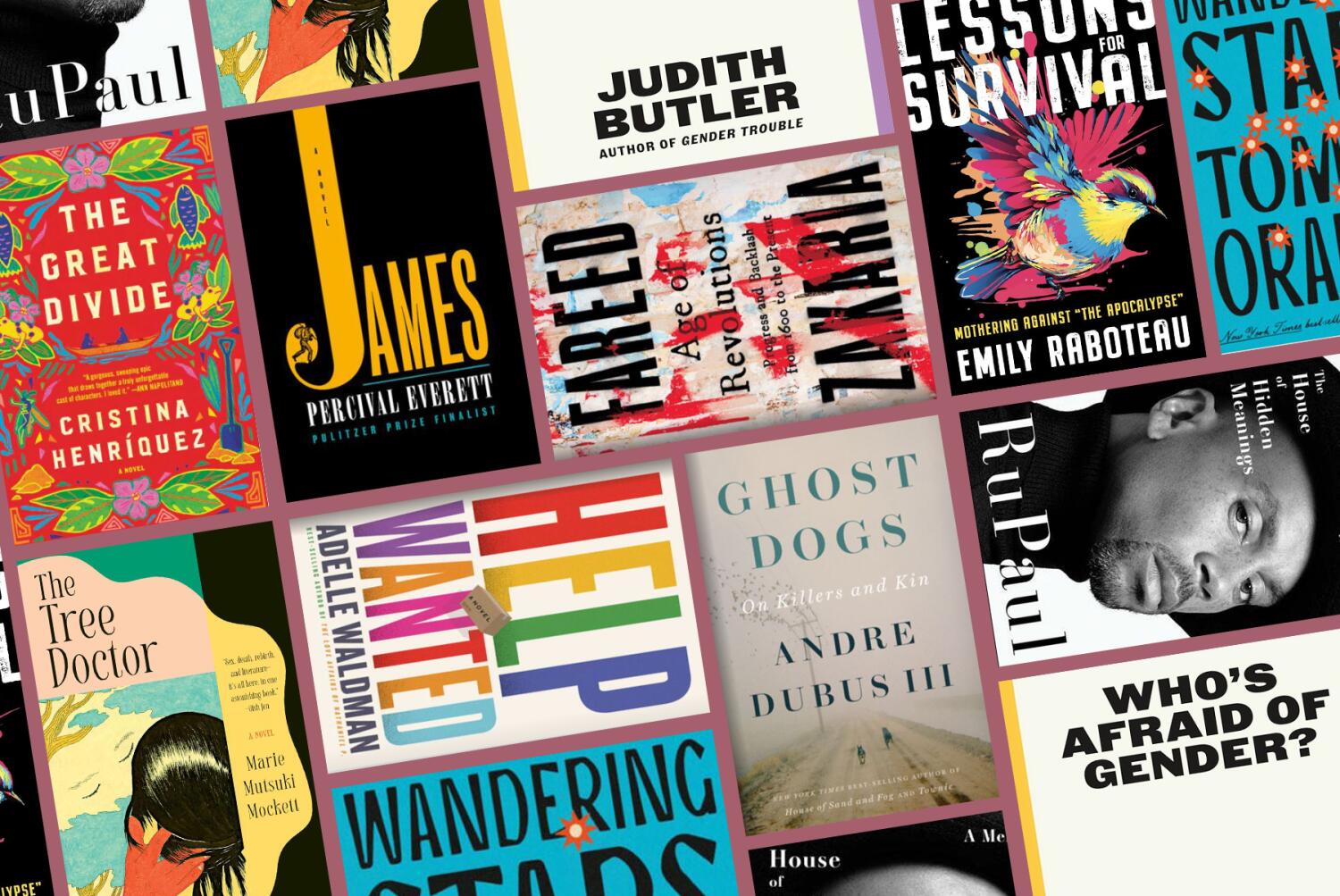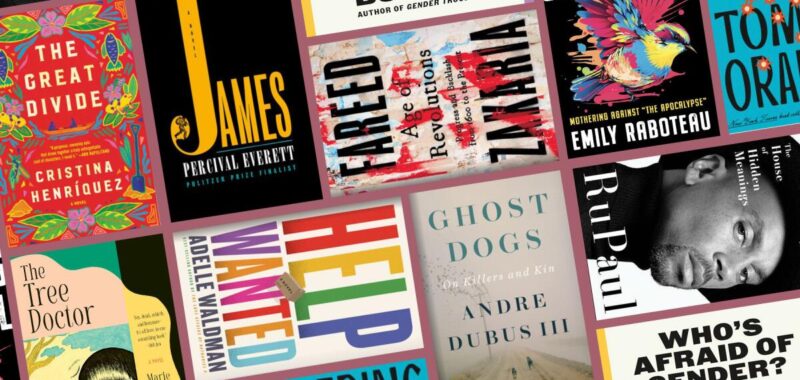
Critic Bethanne Patrick recommends 10 promising titles, fiction and nonfiction, to consider for your March reading list.
Whether your March begins with the traditional winds or snow or rain, we’ve got books for you to hunker down with until things take a turn for the milder. Novels include a comedy of retail manners, two titles that continue character studies and an important retelling of a classic American tale. In nonfiction, two memoirs take on ideas of manhood, while journalists consider revolution and radical caregiving. Happy reading!
FICTION
The Great Divide
By Cristina Henríquez
Ecco: 336 pages, $30
(March 5)
Without the Panama Canal, the American West might look quite different. Accomplished novelist (“The Book of Unknown Americans” et al) Henríquez imagines a laborer, a stowaway and a scientist whose lives intersect during the canal’s construction. However, the author doesn’t let her story become a historical sketch; she’s engaged in deconstructing imperialist concerns and showing how they affected and often crushed those not in power.
Help Wanted
By Adelle Waldman
W. W. Norton: 288 pages, $29
(March 5)
Great workplace novels are few and far between (it’s been a while since 2006’s “Then We Came to the End” by Joshua Ferris), and great workplace novels that deal with social and economic class in our country are even rarer. However, Waldman (“The Love Affairs of Nathaniel P.,” 2013) adds a rare entry to the workplace canon with this wise, funny story of an upstate New York big-box store and an opportunity that sends its employees scurrying for advancement.
James
By Percival Everett
Doubleday: 320 pages, $28
(March 19)
Whether or not you’ve seen “American Fiction,” the new film for which Jeffrey Wright received an Oscar nomination, or read the book from which it’s adapted — Percival Everett’s “Erasure” — once you’ve picked up Everett’s “James,” a retelling of “The Adventures of Huckleberry Finn,” you’ll know that only Everett could take on the task of allowing Mark Twain’s character Jim to show what was missing from the original story.
The Tree Doctor
By Marie Mutsuki Mockett
Graywolf Press: 256 pages, $17
(March 19)
In her brilliant second novel, Mockett delicately combines how we approach time and mortality, as her narrator leaves her family in Hong Kong during the global pandemic to care for her aging mother in California. Once she’s in Carmel, the narrator (who remains anonymous) begins to care for her mother’s neglected garden — and embarks on a downright indelicate affair with a local arborist, hired to help bring a dormant cherry tree back to life.
Wandering Stars
By Tommy Orange
Knopf: 336 pages, $29
(Mar. 27)
Orange’s 2018 “There There” introduced readers to the Bear Shield-Red Feather family of Oakland. In “Wandering Stars,” he stays with them but takes a journey to the 19th century in order to show how one Jude Star survived the 1864 Sand Creek Massacre in Colorado, only to be sent to prison in Florida and school in Pennsylvania and finally drifts to San Francisco. It is intense, precise and gorgeously written, and I hope it presages another volume.
NONFICTION
Ghost Dogs: On Killers and Kin
By Andre Dubus III
W. W. Norton: 288 pages, $29
(March 5)
Even if he did not have a famous writer for a father, Dubus would have plenty of yardsticks against which to measure his achievements, pains and pleasures. In this essay collection, he grapples with gun ownership (and giving up gun ownership), his Louisiana grandfather’s definitions of manhood and his own complicated feelings about privilege. Part of those complicated feelings involve, of course, becoming a father who is a famous writer himself.
The House of Hidden Meanings: A Memoir
By RuPaul
Dey Street: 256 pages, $30
(March 6)
RuPaul Andre Charles cuts an elegant figure whether he sports trendy menswear or fabulous ballgowns. Behind RuPaul’s glamorous life in drag is what he calls “an American story,” one that begins with an underserved youth in San Diego and wends its way through years in the Atlanta and New York underground. One man’s willingness to be vulnerable is also a show of great strength.
Lessons for Survival: Mothering Against ‘the Apocalypse’
By Emily Raboteau
Henry Holt: 304 pages, $30
(March 12)
Raboteau, an award-winning professor and journalist, considers her own role as a mother of two sons as well as the circumstances of mothers around the world in her essays on racism, climate change and late-stage capitalist cultures. She puts “the Apocalypse” in quotes to signify its unknowability, but when it comes to mothering, she opens things up, because we all need to think about “the revolutionary possibilities of care” on a rapidly failing planet.
Who’s Afraid of Gender?
By Judith Butler
FSG: 320 pages, $30
(March 19)
When renowned scholar Judith Butler published their book “Gender Trouble” in 1990, the constructs around identity looked quite different than they do today — and Butler saw through them all. Now Butler returns with a cogent and deeply thoughtful case against the right’s attempts to limit ideas of gender to male and female, offering philosophical and historical evidence to support a fluid system in which all people might present authentically.
Age of Revolutions: Progress and Backlash From 1600 to the Present
By Fareed Zakaria
W. W. Norton: 400 pages, $30
(March 26)
While CNN anchor Zakaria’s book begins with 17th century Holland, readers should keep in mind that the various revolutions covered (from French to Industrial) lead us now to a place smack in the middle of four revolutions: globalization, technology, identity and geopolitics. He argues that careful attention to these, with lessons from the revolutions of the past in mind, might herald the return of liberal democracy and offer us all reasons for hope.

